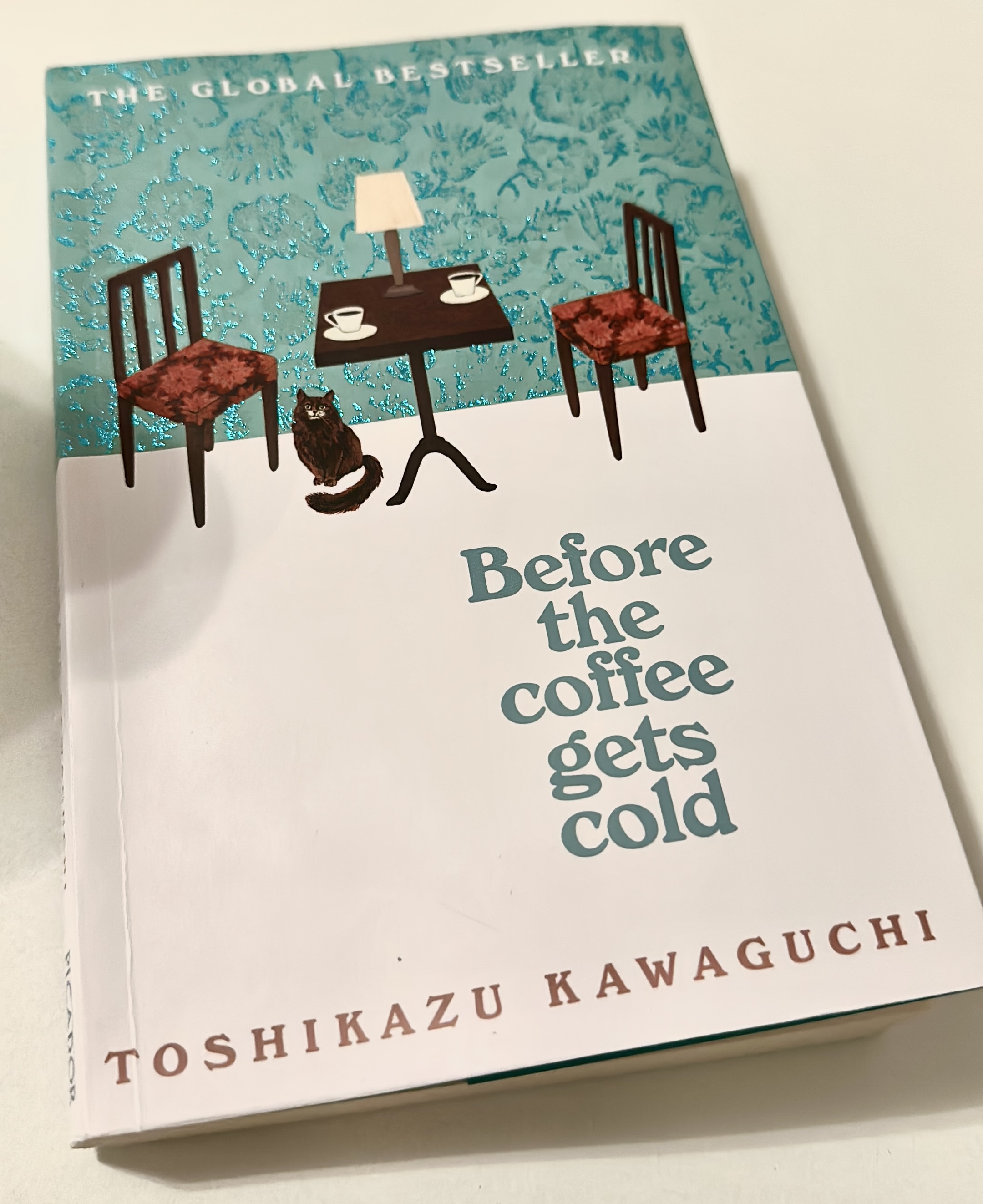
Humans have the amazing ability to normalize some of the most fascinating experiences. One might say that it indeed lets monotony and boredom slip in. Well, that could be true, but normalizing also lays ground for acceptance, creating a larger appetite to accommodate bigger mysteries and lesser-known facts. Such normalized is a Japanese retro café and its urban legend in the backdrop of the book ‘Before the Coffee gets Cold’, that lets the visitors time-travel, if they wish to for any reason.
I came across this book many times on the bookstore shelves, but always dodged it for I was perhaps not in the mind to read some serious time-travel stuff. I was wrong. The book is anything but that! And I finished the book in a single sitting straight. It uses the phenomenon of time-travel softly as a connecting string between different characters to draw a more humane story that eventually talks of changing hearts, and purposes when faced with the unexpected.
Written by Toshikazu Kawaguchi, the book is an adaptation of one of the award-winning plays by the author. You will discover why, as you read. The book comprises four beautiful stories of love, separation, old age, and death (you can put all in the category of love, surely), of people like you and me who are suddenly brought to the crossroads by life; where all the efforts to change the past go in vain, while the future still holds the seed of hope. All the stories are wonderfully interwoven. The author puts the idea of the next story in the ongoing one through circumstances and interplay; although that makes the next story a bit predictable, the author has made sure to keep one hidden element waiting to be uncovered by the readers as they turn the pages. It’s all done in a very subtle, yet intelligent way.
All the characters have the right balance, and essence to their role. Nagare, Kei, and Kazu are constant across all the stories, and then there’s Fumiko, Goro, Kohtake, Fugasi, Yaeko, Kumi, and Mikki – all transiting between the stories, and with one specific revolving around them. However, Kazu’s stability and her stepping up in the right situation touched my heart. Also, everything in the story is there for a reason – the chairs, lamps, cups, smoke, women in white dress, the door ringing clang-dong. There is nothing extra that the story could do without. And just as when you think all the characters are travelling to the past, wait until the main ones decide to travel to the future!
I’ve been thinking for a while what happens to the human consciousness when time-travelling. The book doesn’t answer any such question. But do not worry, for almost every scientific query occurring to you, the author has placed some well-defined ‘rules’ that will put an end to your logical distractions and bring your attention back to the story with more interest. Personally, it was slightly tough for me in the beginning grasping the names of Japanese characters and places since I am used to reading the commonly used English or Indian names, but I think the author has thought well about the global readers and tried to keep everything simple, with more focus on the story he wished to tell. I really liked how the characters bowed to each other in acknowledgement – that’s one thing we all know about Japanese culture for sure.
I would recommend this book to everyone. Yes, everyone! It’s kind, noble, and touching. And I have a feeling that everyone would connect with it, in some way. So, tuck yourself tight, get yourself a warm cup of coffee, and read through this book, before your coffee gets cold.
Review by: Nazneen Siraj Kachwala
Leave a comment